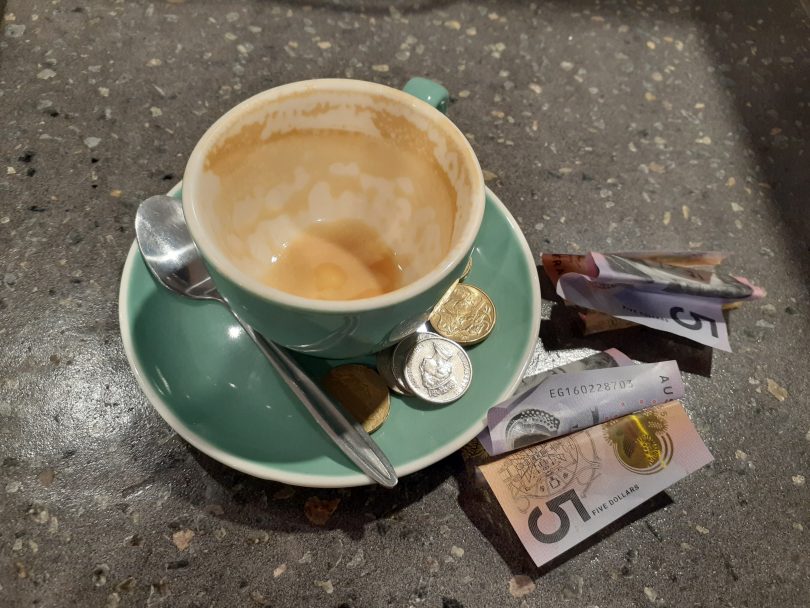
Money changes everything, whether you have a little or a lot. Photo: Supplied.
I’ve been thinking about the drive that keeps us all on an upward trajectory when it comes to income and assets, and how trying to step back and get some perspective can make us feel instantly richer and more grateful for what we have.
As we get older, our perspective changes and things we were happy with in our 20s no longer seem good enough. The crappy cars and houses, the clothes from op-shops, the bus tickets, the worn-out shoes and the cheap pizzas and wine.
How is it that we all fall for this gradual shifting of expectations?
To some extent, we all have similar emotional patterns around money – that we’re as good as the money we make and that we deserve however much money we have.
Our egos get tangled up in our bottom line, which is why it’s so hard for people to take a step backwards in income, even when it’s the right thing to do.
Psychological studies have shown that income is equated with happiness, but only up to a point. In Australia, studies in 2019 show that happiness is linked to income peaks between $95,000 and $125,000 per household.
Despite never earning more than we need to get by and always driving cars that are 20 years old, my husband and I are fully-fledged capitalists in some ways, benefitting from buying and selling real estate.
The other day I was talking to someone who has just moved from Sydney. She was telling me she’s worried about the recession and losing her husband’s Sydney income when he joins her in the Bega Valley.
“Don’t worry, lots of people live on not much here,” I told her. “We’ve never made more than about $50,000 each year.”
Her jaw dropped.
“Each?” she asked.
“Nope, together,” I said, my cheeks reddening.
I was beginning to regret saying anything, feeling mildly ashamed of how little we make, even though it feels like a lot to me.
The thing is, our money is not ours. It’s assigned to us according to privilege, luck and, to a lesser extent, how hard we work. By global standards, everyone in Australia is wildly rich.
In our case, privilege means that we bought our first house with help from a $10,000 loan from my parents and after cashing in some savings bonds my husband’s grandma had given him.
We came from families that had a bit of money. Not a lot by western standards, but still money.
When we bought our house last year, a dear family friend helped us again, giving us a short-term loan for the amount we needed so we didn’t have to battle the banks over the desolate state of the house.
Some of our friends are just looking at buying their first house. Their families can’t offer them any help with a loan or a gift, and when we were talking about it with them, my husband blurted out that we could help them.
“I hope that’s OK,” he said to me afterwards. “I just know that we had that help and it’s only right to pass it on.”
Absolutely.
Wealth is only fun if you share it. And we can do a lot to address the inequalities we see by giving to those who earn less or have more need than us.
My husband and I are getting to the stage where we need to step up our sharing beyond giving to GoFundMe campaigns so we don’t accidentally go into hoarding mode and build our identities on having a certain amount of money or assets.
The building of wealth is exciting in some ways, but perhaps the fun is more in the game than actually getting to a certain level. Our grandparents and parents rose to these challenges, building something out of not much.
The challenge for my generation and those behind me is to choose less. To choose deprivation, not in a self-flagellating way but in a thoughtful way.
The less I use, the more there is for others.
We all need money to live. But more than that, we need each other.
Let’s give to each other so money is a river that flows around us all, not something that gets caught and stored in deep, cold dams for the benefit of a few.
Original Article published by Elka Wood on About Regional.




















